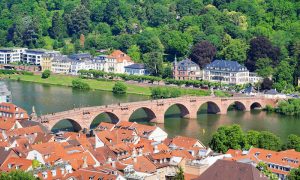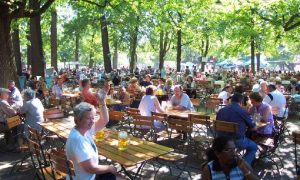As European countries face aging populations and shortages of skilled personnel, Germany, the economic engine of Europe, is using more open and flexible policies to attract highly skilled personnel and newimmigrantsIn 2025, the German government is interested inEU Blue Card,skilled migrantconduitup toFamily reunification policySignificant updates were made with the aim of further streamlining the process, expanding the beneficiary population, and providing enhanced residence and naturalization pathways.
If you are planning toImmigration to GermanyThis article will explainThe latest policies and practical guidance on the three mainstream immigration routes, providing clear direction for your planning.
I. Focus of the 2025 update of the German Blue Card Policy
The EU Blue Card is a residence permit for highly-skilled people. In 2025, Germany officially implements a new version of the Blue Card Act, which introduces a number of major beneficial reforms:
✅ Latest highlights include:
-
Minimum wage threshold lowered again
From 2025, the minimum annual salary criterion for applying for a Blue Card has been reduced to Euro43,800 (Euro39,700 for some shortage sectors)The number of people who have been in the market for a long time is significantly lower compared to the previous one. -
Expanding the list of shortage occupations
New shortage sectors such as IT engineers, medical caregivers, and renewable energy technicians have been added so that non-college-educated but experienced people can apply. -
Non-college graduates are allowed to apply
possession5+ years of industry experiencePeople who do not have a formal degree can apply for a Blue Card, even if they have no formal degree, as long as they have certified skills. -
Faster Permanent Residence
Under the new policy, Blue Card holders will only need to 21 months It is possible to apply for permanent residence in Germany (B1 language level), if you reach A1 it takes 33 months. -
Simplified conditions for accompanying spouses
Spouses are no longer required to have a basic knowledge of the German language and can enter the country at the same time and work freely.
🔍 Suitable for people:
-
Overseas university graduates specializing in engineering, IT, medicine, finance, etc.
-
Experienced middle and senior skilled workers
-
People who want to get permanent residence in Germany quickly and enjoy social security benefits
Two,skilled migrantPassage: a more flexible non-degree immigration pathway
The German Skilled Migration Pathway is designed to bring in a non-degree but hands-on labor force, especially in industries such as construction, electricians, metalworkers, nursing, and chefs.
✅ Content of the 2025 Skilled Immigration Reform:
-
Chancenkarte is officially on the ground.
A points system is used, taking into account age, education, German language skills, work experience, etc., and a score of more than 6 points can lead to a one-year stay in search of work. -
Accelerated certification process for non-EU professional qualifications
In the corresponding industry, experience and training are included in the recognition of equivalence, which helps to shorten the gap between "certification" and "work". -
"First come, first served" strategy support
Certain technical positions can be entered with an opportunity card to work while looking for a formal contract, lowering the barrier to entry. -
More flexible German language requirements
Initially, only A1 or no language requirement is required, and you can further study after entering the country to reduce the burden of application.
🔍 Suitable for people:
-
Graduates of domestic vocational schools with skill certificates
-
Skilled workers without advanced degrees but with many years of hands-on experience
-
General workers who want to learn German at work and gradually integrate into German society
III. Optimization of family reunification policy: more peace of mind for migrants
The 2025 German family reunification policy also makes a series of humane reforms to help skilled migrants live with their families and improve their quality of life.
✅ Key reform points:
-
Further relaxation of language requirements
German embassies abroad have implemented a more flexible assessment of the A1 language requirement for reunited spouses, and some occupational groups can apply for exemptions.
-
Accelerated reunification of minor children
The approval time for family reunification has been compressed to less than three months, and a green channel has been opened to process applications from school-age children. -
Full access to employment for family members
Spouses and adult children entering the country as part of a family reunion may be employed directly in Germany without additional authorization. -
Increased stability of residence
Once the main applicant is granted permanent residence, his/her family members can also apply at the same time, which guarantees the family's long-term stability in Germany.
🔍 Suitable for people:
-
Blue card holders and skilled immigrants already working in Germany
-
Applicants who want to bring their spouses and children to live with them
-
International students who convert to work visas after graduation and settle with their families
Four,Immigration to GermanyTrend 2025: more diverse and inclusive
The German immigration system in 2025 shows the following new trends:

-
From "academic migration" to "skills migration": Non-college graduates have a much better chance
-
The family and the individual go hand in hand: Policies to encourage stable, long-term family life
-
Progressive language integration oriented: Low initial threshold, focus on later enhancement
-
Digital Management System Goes Live: More transparent and efficient migration processes
V. Conclusion: it is nowImmigration to GermanyOne of the best times for the
Germany is shifting from a "talent shortage" to a "global rush", and the policy adjustments for 2025 send a clear signal:
"People who have skills, who are willing to work, who are willing to integrate into Germany, will be welcome."
Whether you're an IT techie, a worker with hands-on experience, or want to reunite with your familyrecent immigrantsThe year 2025 is an important window of opportunity for you to migrate to Germany.






